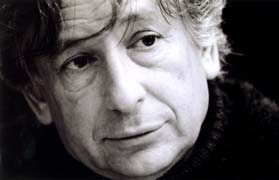
Jean Rouaud
Jean Rouaud was born in Campbon, at the Loire estuary, in 1952 and grew up in a lower middle-class merchant’s family. After finishing his literature studies in Nantes he moved to Paris in the eighties, and worked among other things as a fireman, journalist, publisher’s representative and co-proprietor of a kiosk. In 1990 he published the bestseller »Les Champs d’honneur« (Eng. »Fields of Glory«, 1992), for which he was awarded the Prix Goncourt. The autobiographical family novel describes life in the French provinces at the outbreak of World War I. The work signals the brilliant prelude to a five-volume cycle, which mirrors twentieth-century France in the fate of three generations of the author’s family. All books in the cycle have been translated into German, and three of them into English.
In his reworking of the regional narrative, Rouaud parallels the mindset of writers such as Pierre Michon, Patrick Drevet and Pierre Bergounioux. The fond irony with which he observes his relatives also represents a denial of the Paris-fixated »parricidal« literature of post-68 by the Existentialists, with whom he had at first sympathized. »I wanted to atone for this disavowal. That is one reason for writing this book.« Rouaud thus repeatedly circles the network of relationships between memory, history and identity. He offered his father, who died young, a memorial with the book »Des hommes illustres« (1993; Eng. »Of Illustrious Men«, 1994). His next novel, which appeared in 1996, was entitled »Le Monde à peu près« (Eng. »The World, More or Less«, 1998) and dealt with the new Establishment and discourse in the France of 1968, narrated from the perspective of his alter ego, an extremely myopic and aloof young student and hobby footballer. In »Pour vos cadeaux« (1998; t: For your presents), he offers a lovingly whimsical portrait of his mother. »Sur la scène comme au ciel« (1999; t: On stage as in heaven) marks the close of the autobiographical project in an homage to both his parents which at the same time reflects the reception of the previous volumes. Rouaud’s present tense prose, which alters to personify each individual character, excited critics with its attention to detail. This style is especially clear in his essays. In »La Désincarnation« (2001; t: The disincarnation), the father’s idiosyncratic habit of knocking on old dishes in search for cracks becomes the source for poetic meditation. His thoughts on the relationship between fiction, authorship and reality, critical of post-structuralism, are pursued in the volume »L’Invention de l’auteur« (2004; t: The invention of the author).
Alongside his literary career, Rouaud is also active as a chansonnier and playwright. He received the Grand Prix Littéraire de Saint-Emilion Pomerol-Fronsac for his most recent novel, »L’imitation du bonheur« (2006; t: The imitation of happiness). The story of a young woman in 1770s Paris skillfully merges the techniques of the Nouveau Roman (cinematic writing, flashbacks, multiple perspectives) with traditional narrative. Rouaud lives in Montpellier.
© international literature festival berlin
Die Felder der Ehre
Piper
München, 1993
[Ü: Carina von Enzenberg, Hartmut Zahn]
Hadrians Villa in unserem Garten
Piper
München, 1994
[Ü: Carina von Enzenberg, Hartmut Zahn]
Promenade à la Villette
Editions d’art
Somogy, 1997
Les très Riches Heures
Minuit
Paris, 1997
Die ungefähre Welt
Piper
München, 1997
[Ü: Carina von Enzenberg, Hartmut Zahn]
Cadou Loire intérieure
joca seria
Nantes, 1999
Carnac ou Le prince des lignes
Seuil
Paris, 1999
Der Steinzeitzirkus
Piper
München, 1999
[Ü: Giò Waeckerlin-Induni]
Der Porzellanladen
Piper
München, 2000
[Ü: Josef Winiger]
Les Corps infinis
Actes Sud
Arles, 2001
Pierre Marie Brisson Traces
Editions d’Art
Somogy, 2001
Régional et Drôle
joca seria
Nantes, 2001
La belle au lézard dans son cadre doré
Michel
Paris , 2002
Meine alten Geliebten
Piper
München, 2002
[Ü: Josef Winiger]
L’Invention de l’auteur
Gallimard
Paris, 2004
Schreiben heißt, jedes Wort zum Klingen bringen
SchirmerGraf
München, 2004
[Ü: Elsbeth Ranke]
L’Imitation du bonheur
Gallimard
Paris, 2006
Préhistoires
Gallimard
Paris, 2007
Pour vos cadeaux
Editions de Minuit
Paris, 2008
La Fiancée juive
Gallimard
Paris, 2008
Übersetzer: Carina von Enzenberg, Elsbeth Ranke, Josef Winiger, Hartmut Zahn
